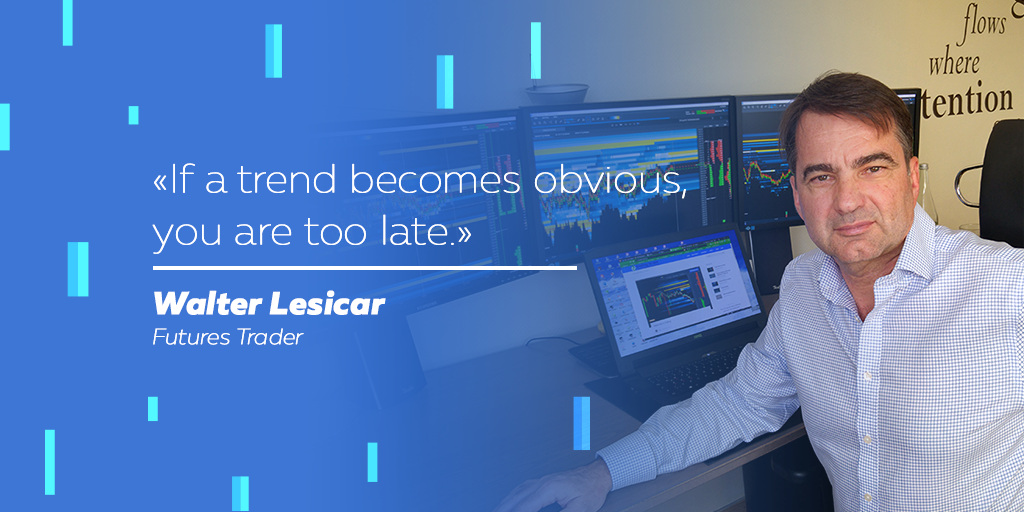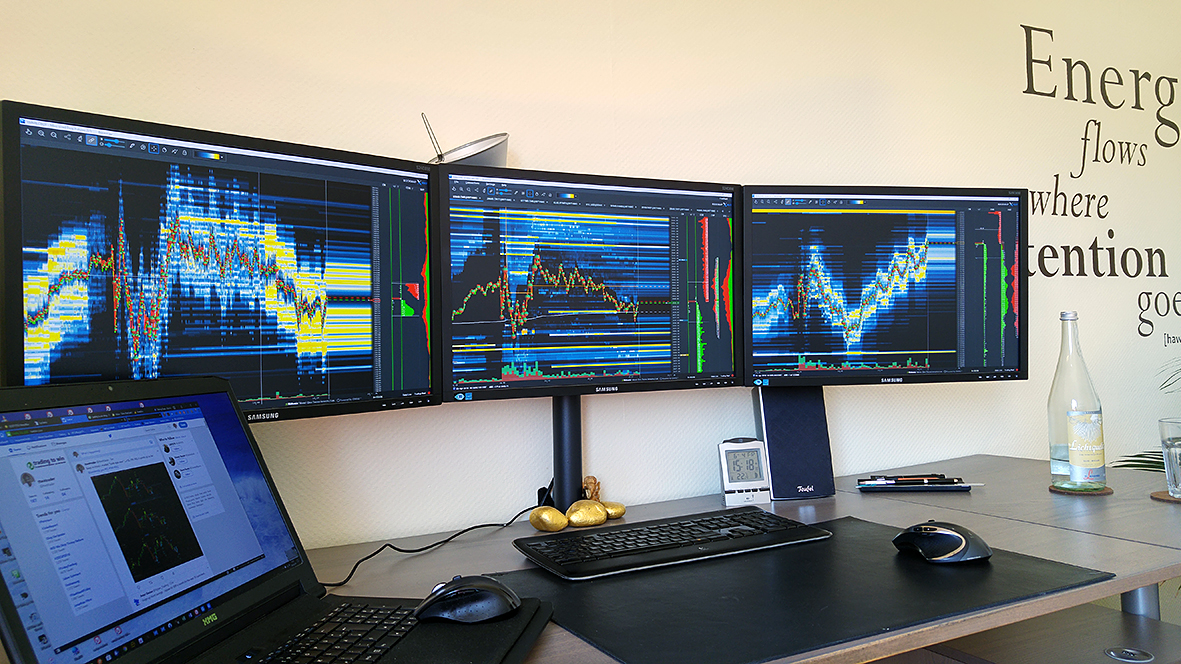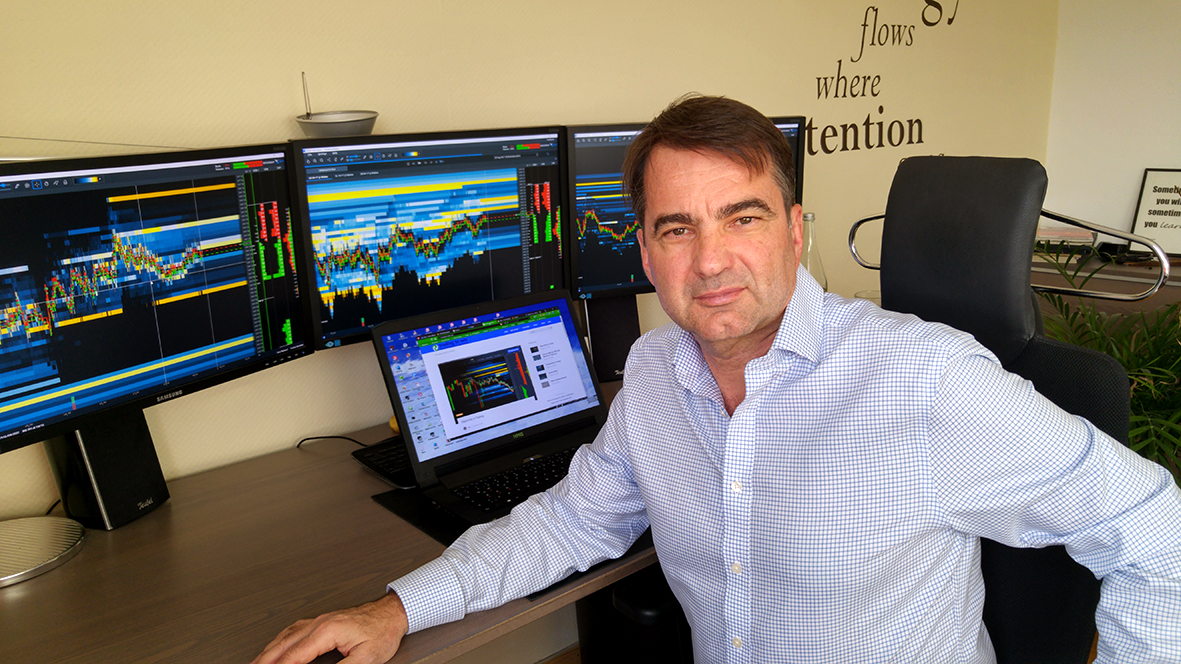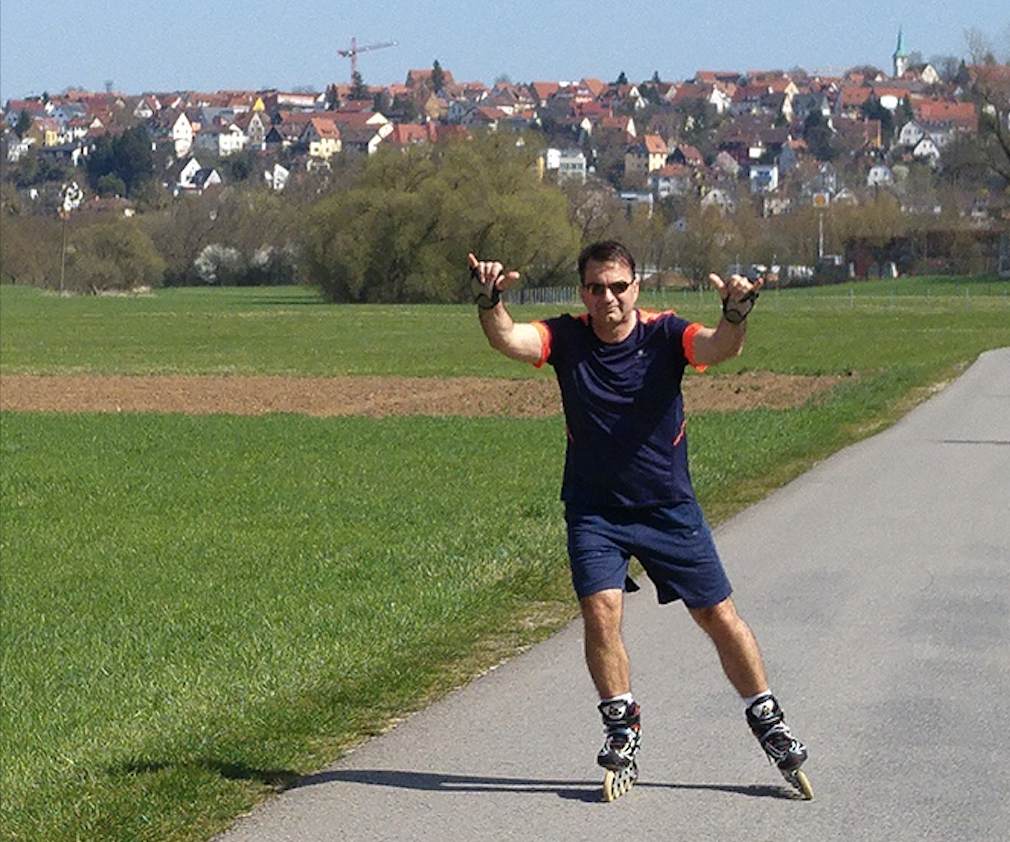What is your attitude towards risk management? How much do you risk per one trade?
I am risk-averse. I don’t like losses. But losses are an inevitable part of my job. So this leads to some protections I have learned from other traders and developed for myself.
A trade starts with minimum contracts to see whether the market goes in my direction or not. If the market goes in my course, I am looking to add additional deals to my position. This allows me to get the most out of the move.
My motto is: “If a trend becomes obvious, you are too late.” My stops in ES are 1,5 – 2 pts. When a trend starts, I am tightening and trailing my stops. Either the move runs in my favour or not. I do not and never wait until my stop is hit only because I have set a stop if the price goes against me.
I am aware that there are a lot of stop recommendations from “Don’t use stops!” until “Tight stops destroy your profit!” Anyway, I have developed own way to manage my risk.
Do you believe that trading long positions are easier than trading short ones as some traders claim? For how long do you hold a trade?
Short positions are more exciting to me because when I am “on the train”, I profit faster from the short trade. As long as a position goes in my direction, I am okay with both directions.
Since I am a day trader, I close all positions when I reach my daily goals.
Have you ever panicked? How did you feel? What lessons did you learn when reflected upon the situation after that?
Oh yes, I did! It was at the beginning of trading when I didn’t have a clue about position sizing, stop management, etc. It was more gambling than trading. When I realized that trade went against me, I added more to the losing position, and it went worse and worse.
Fear and sweat controlled me! The incapability to act paralyzed me. I lost a lot and thought that this money would be better invested in my kids instead of this sick idea. And you know what, that experience is in my bones until today.
This was the time when I promised myself to stop gambling and start to understand what the market is, how to analyze it and what trading principles must be learned to become a trader. It took years to come back.
Can you name your biggest mistake? What are the most common mistakes traders do?
My biggest mistake was to follow people blindly for some time, but they were as blind as me. It looked like trading an ideology — a faith rather than the market. If one has little knowledge and is undereducated in trading, he is more willing to follow other people and hope they will be honestly interested in him.
Most common traders’ mistake is relying on other traders, automatic strategies and trading systems. It is simply because they want to get rich in a short time, or they are financially under pressure.
A good example today is the cryptocurrency market. Look around and see people blindly following market crier who proclaims that only their cryptocurrency is the true one with 40% return on investment per month!
Develop your own system! Learn and practice in a simulation account! Although there are enough good and honest traders, who will support you, learn to walk by yourself.
In case of trading, the following saying is so true: “Give a man a fish, and you feed him for a day. Teach a man to fish, and you feed him for a lifetime.”
Would you recommend trading to your family members and friends?
If you have had asked me this question 10 years ago, I would have answered: “No.” At that time, I had no direction to follow, though my knowledge about charting, technical analysis, and indicators was sufficient. I was like a leaf in the wind: I followed certain people and especially their trading ideology that didn’t quite work for me. I expected to “trade-for-living.”
It changed when I came in contact with professional traders on a trading floor in the UK nearly ten years ago. Then I realized that they are working with an “Order Book.” At the same time, Peter Davies launched his Jigsaw Trader which was affordable to me, and so I dived into the world of order flow and order book reading. It was a hard time learning to read an order book, but over time it became more evident. Some years later the first version of Bookmap was launched. From then on, the idea of real trading became more and more solid and clear.
Today I would definitely say “YES.” With today’s technology, I can recommend and teach them how the order flow works and how to trade.
What traders do you admire?
Myself (laughing). Because I stayed stubborn and wanted to learn how to trade.



